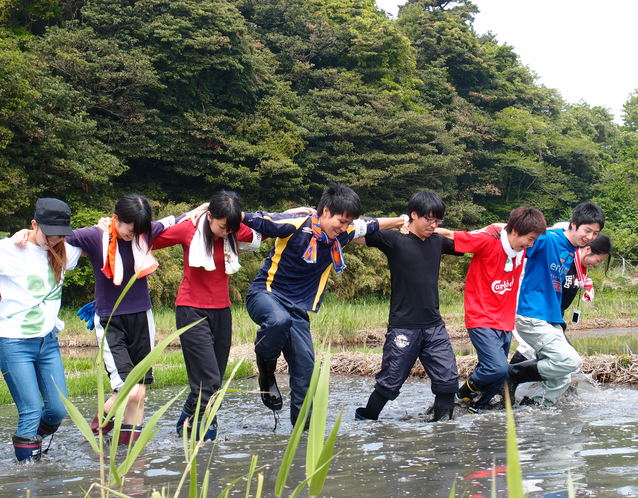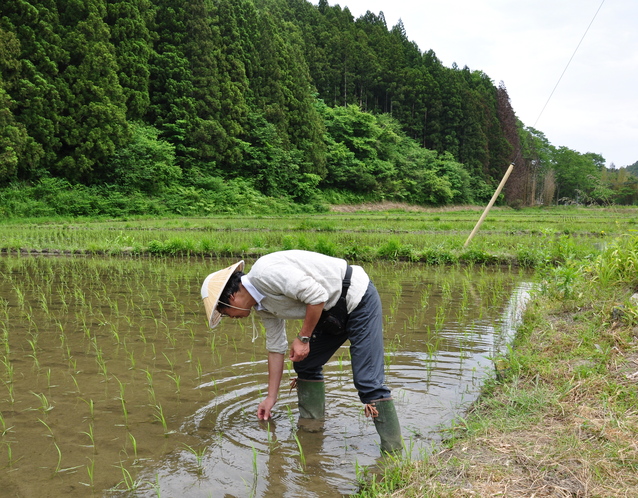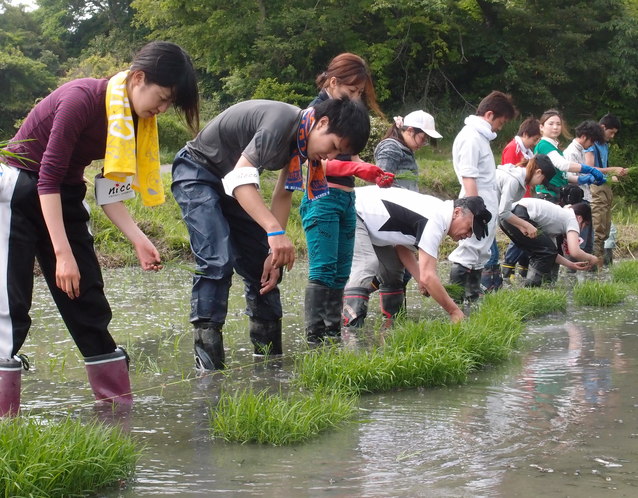


Agriculture, and rice production in particular, is an economic mainstay of the Tohoku area, and its cultivation has deep and historic significance for the local community. The 2011 tsunami caused substantial disruption to rice production, a staple food in Japan. Floods deposited salt, glass, rocks, iron and other debris on the fields.
As the area entered the early recovery phase, the restoration of income generating activities to improve living standards became of vital importance. The JTI Foundation supported NICCO in their efforts to give paddy farmers in the Tohoku area a fresh start using a new eco-farming technique.
NICCO had previous experience of eco-farming models in Malawi, Jordan, Israel and Palestine. In the aftermath of the disaster, it worked in conjunction with local Not for profit organization Tambo (“rice field”) to introduce the “Fuyumizutambo” method to four damaged rice farms close to the cities of Ishinomaki, Kesennuma, Minamisanriku and Shiogama.
This technique, recommended by Japan’s central government, involves winter flooding of paddy fields, resulting in desalination of contaminated soil, and the restoration of biodiversity. As a result, the rice produced is of better quality, which is both more profitable for farmers and more environmentally friendly.
Activities began with the cleaning of debris from the paddy fields, and planting and harvesting rice using volunteers from universities around the country, including Tokyo and Kyoto. Initially six farmers from four model farms benefitted directly, while 400 other local farmers attended “Fuyumizutambo” workshops and training sessions. After one year, NICCO expanded the program, aiming to generate sustainable and increased income for more local farmers, on the basis of its eco-friendly produce.